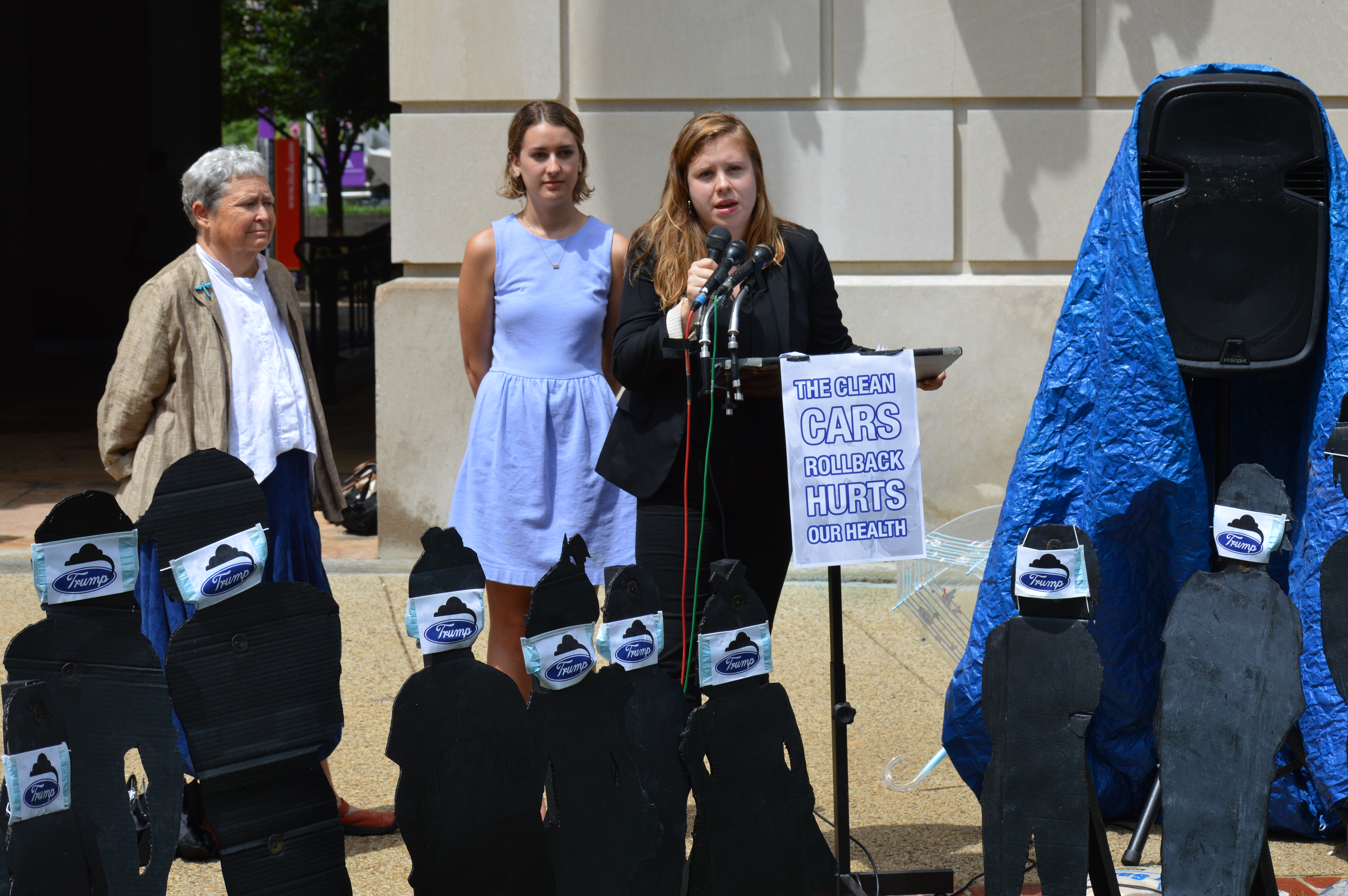2018 Year in Review: Energy and Environment

Climate change continued to wreak havoc in 2018, one of the hottest in recorded history. Extreme heat helped fuel large and catastrophic wildfires in the West a few months after Hurricane Florence led to unprecedented flooding in North Carolina. A day before Florence reached the coast, researchers announced that human interference in the climate system would increase rainfall from Florence as well as make the storm larger and more intense.
Still, lawmakers are not doing enough to stave off catastrophe. To raise the alarm, Public Citizen is running two campaigns. The first, “Cover Climate,” which launched in 2017, regularly calls out the media outlets that don’t mention climate change in coverage of extreme weather events.
In 2018, we reached out to media before hurricane season and the summer heat set in and issued analyses showing that major media failed to connect climate change with extreme heat, wildfires and hurricanes. For instance, in the first six months of 2018, the top 50 U.S. newspapers mentioned climate change just 17.6 percent of the time when discussing extreme heat; among major broadcast networks, the rate was 7.1 percent. After that report came out, the top 50 newspapers and the broadcast networks more than doubled the rate at which they mentioned climate change in the context of extreme heat.
As part of the campaign, Public Citizen is building a network of activists to help us push media to cover climate. Through it, we generated hundreds of letters to local newspapers in 2018 about the importance of covering climate change.
Because research shows that many people think climate change doesn’t affect them, Public Citizen’s second campaign highlights the immediate harms of climate change. One of those is the increasing dangers to people who work in the heat, such as people who work on farms and in unairconditioned warehouses. In July, we released research detailing the extreme heat conditions faced by tens of millions of U.S. workers and how climate change will exacerbate these dangerous temperatures. We amassed a coalition of more than 130 organizations as well as two former administrators of the U.S. Occupational Safety and Health Administration (OSHA), and filed a petition with the agency, calling for a federal heat standard to protect workers. Through a petition drive, more than 60,000 people also have called for federal protections for those who work in the heat.
The filing of the petition marked the launch of a national campaign to raise awareness around the impacts of climate change on the health and safety of workers, as well as other vulnerable populations. We are building a large, cross-sector coalition comprising labor, public health, environmental justice, environmental, and faith groups to advance this work.
- Federal clean car standards (also known as fuel economy and greenhouse gas emissions standards) issued under President Barack Obama are the strongest policies on the books to fight climate change. These rules have saved consumers more than $72 billion at the gas pump and will cut six billion metric tons of dangerous carbon pollution by the time they are fully implemented. But the Trump administration in 2018 moved to roll back those standards. In May, Public Citizen and six other groups filed a challenge to the rollback in the U.S. Court of Appeals for the D.C. Circuit. Meanwhile, Public Citizen continued to pressure one major automaker – Ford Motor Company – to stop working behind the scenes with the Trump administration to roll back the standards. Public Citizen, the Sierra Club and Safe Climate Campaign held protests and press events in Ohio, California, Michigan, Pennsylvania, Nevada and Washington, D.C. Outside an Ohio conference center where Ford’s CEO spoke, protesters took to the nearby Scioto River and floated a raft carrying the message: “Dump Trump, Protect Consumers at the Pump.” And at a federal hearing in September in Dearborn, Mich., we set up several dozen vintage-style alarm clocks that rang simultaneously to deliver a wake-up call to Ford. We also helped generate more than 300,000 public comments condemning the proposed rollback. Public Citizen will sue the Trump administration if it does roll back the clean car standards.
- In a Federal Energy Regulatory Commission (FERC) filing made in September, we argued that federal energy regulators must require the New England Power Pool, an association that sets New England’s electricity policy, to open its meetings to journalists and the public. We also recruited congressional lawmakers to the effort; in September, the chair of the U.S. House Energy and Commerce Energy Subcommittee, U.S. Rep. Fred Upton (R-Mich.), and 11 other House of Representatives members wrote to FERC expressing “great concern” with the press ban.
- In February, we filed a complaint with FERC against PJM, the country’s biggest utility, for making nearly $460,000 in political contributions, paid for through customers’ utility bills. After exposing the undisclosed lobbying and political spending of PJM, we called on FERC to investigate the utility’s secret campaign donations. FERC quickly responded by seeking public comments about our complaint. We generated 3,500 supportive comments to FERC from our members in the 14 states where PJM operates. FERC’s decision is pending.
- We exposed efforts by top Trump adviser and financial supporter Andy Beal to force radical changes in California power market rules to deliver large ratepayer-funded subsidies to his new power plant. In November, FERC issued an order agreeing with Public Citizen and dismissed Beal’s efforts.